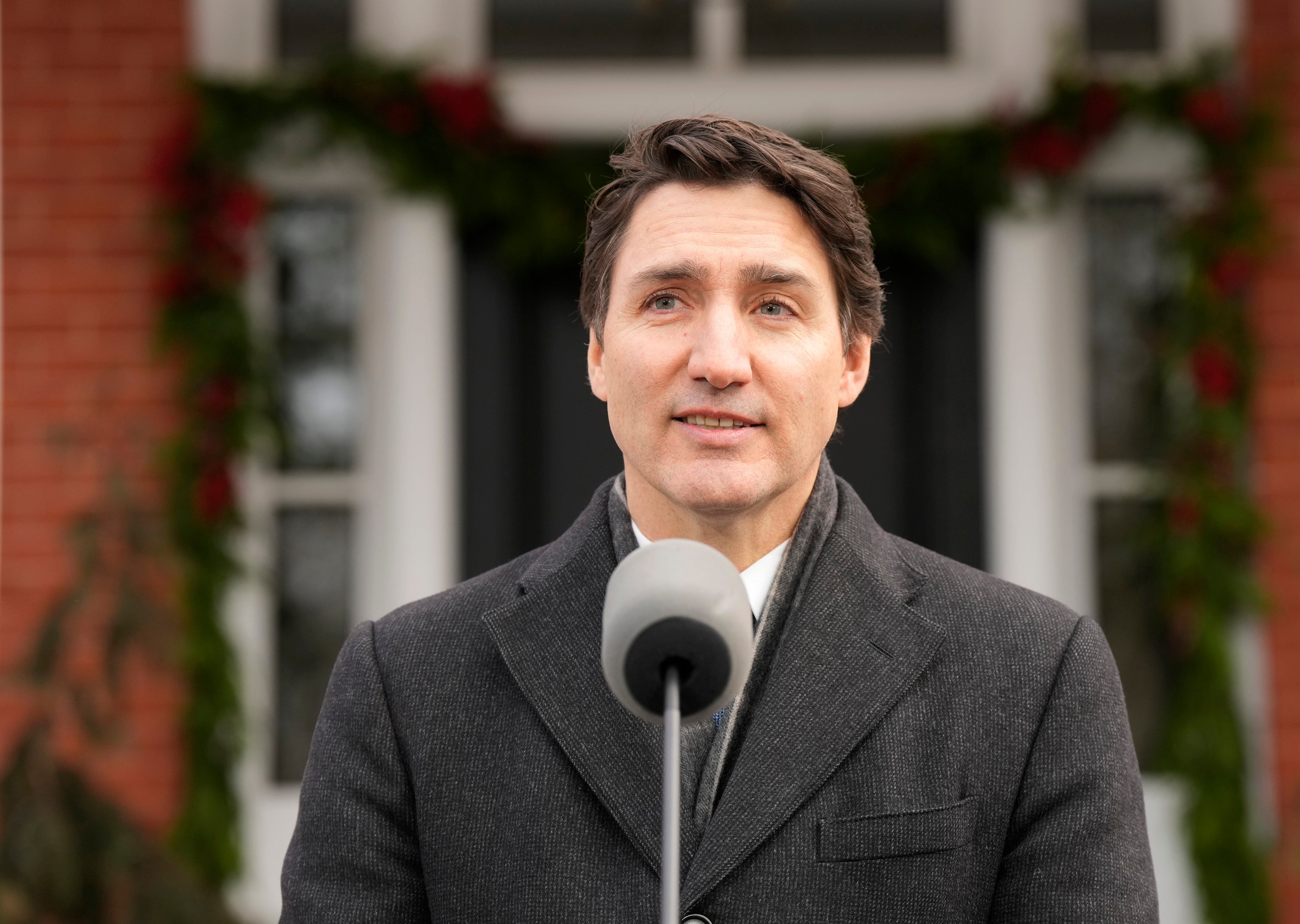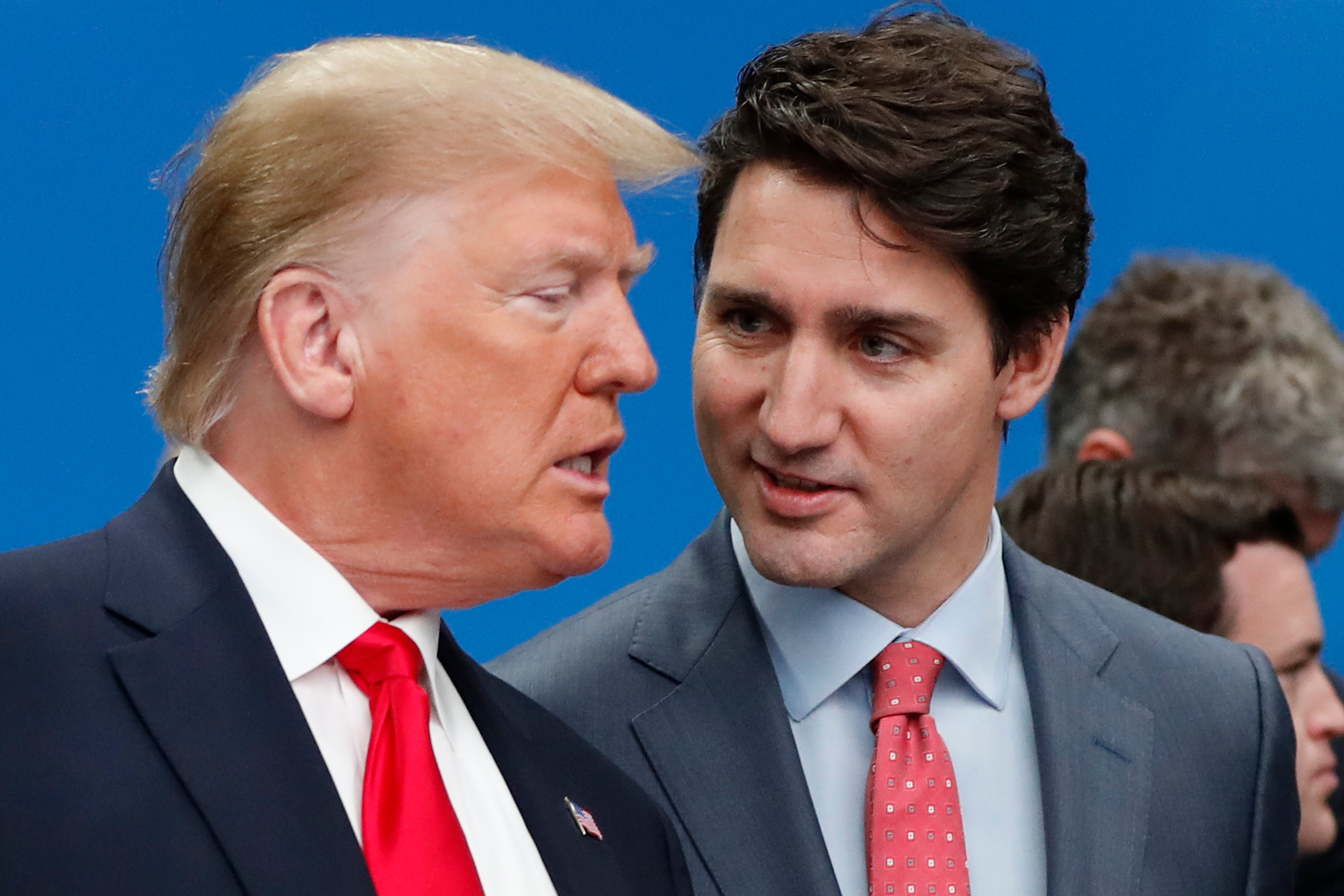What happens now that Justin Trudeau has resigned?
Trudeau will remain prime minister until the Liberal Party chooses a new leader
Your support helps us to tell the story
From reproductive rights to climate change to Big Tech, The Independent is on the ground when the story is developing. Whether it's investigating the financials of Elon Musk's pro-Trump PAC or producing our latest documentary, 'The A Word', which shines a light on the American women fighting for reproductive rights, we know how important it is to parse out the facts from the messaging.
At such a critical moment in US history, we need reporters on the ground. Your donation allows us to keep sending journalists to speak to both sides of the story.
The Independent is trusted by Americans across the entire political spectrum. And unlike many other quality news outlets, we choose not to lock Americans out of our reporting and analysis with paywalls. We believe quality journalism should be available to everyone, paid for by those who can afford it.
Your support makes all the difference.Canadian Prime MinisterJustin Trudeau is stepping down as leader of the Liberal Party after serving as prime minister for nearly a decade – a move that requires the party to choose a new leader.
Facing mounting pressure to resign from members of his own party, Trudeau announced on Monday he will step down from his post which he was first elected to in 2015.

“I intend to resign as party leader, as prime minister after the party selects its next leader through a robust nationwide, competitive process,” Trudeau said on Monday.
Now, the Liberal Party will decide on its next leader by holding a contest to decide who will succeed Trudeau. Until they do so, Trudeau will remain prime minister.
The move comes eight months before the country is expected to hold federal elections
For months, Trudeau has been facing resignation calls as Canadians face a cost of living crisis and, now, fears of economic turmoil thanks to President-elect Donald Trump’s threat to impose a 25 percent tariff.
Those calls became more aggressive in December after Chrystia Freeland, the deputy prime minister and finance minister, unexpectedly resigned. That was, in part, due to disagreements over how to handle the potential tariffs.
By the end of the year, Liberal caucus members had joined the resignation calls, leaving Trudeau with dwindling options. While announcing his resignation, Trudeau citing fighting “internal battles” as one of the reasons he was stepping down.

Trudeau said he asked the president of the Liberal Party, Sachit Mehra, to begin the leadership selection process.
The Liberal Party would have until March 24 to decide on a new leader. Parliament was supposed to resume on January 27 but Trudeau has asked for a lengthy suspension to give the party time.
Canada’s opposition parties, the Conservative Party, Bloc Québécois and the New Democratic Party, all said they planned to hold a non-confidence vote when Parliament returned. Should the vote prevail, which it is likely to, it would trigger an early federal election.
In the meantime, the Liberal Party national board of directors must meet within the month to set a date for a leadership vote as well as establish other parameters around the leadership contest, according to the party’s constitution.
Several people could replace Trudeau as Liberal Party leader, including Freeland. As the former deputy, she is one of the most well-known members of Trudeau’s team and a top contender.
Transport Minister Anita Anand could be considered for the position, as well as François-Philippe Champagne, the registrar of Canada and minister of innovation, science and industry,
Other names thrown into the mix include Mélanie Joy, the minister of foreign affairs; Sean Fraser, the former minister of immigration and former minister of housing; Mark Carney, an adviser to Trudeau and the former governor of the Bank of England; Christy Clark, the former premier of British Columbia; and Dominic LeBlanc, the minister of finance.

Join our commenting forum
Join thought-provoking conversations, follow other Independent readers and see their replies
Comments